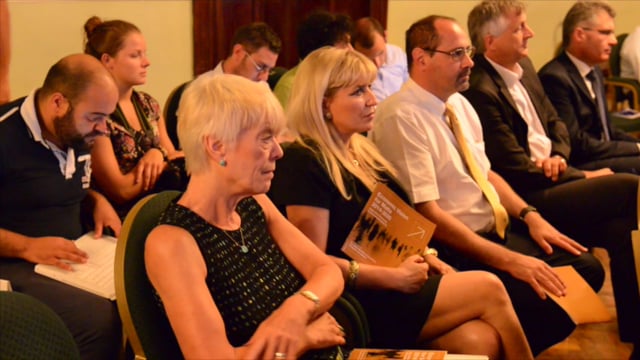Chamber of Commerce’s vision for economy requires ‘much political attention’
Chamber president David G. Curmi: ‘In the past, the government always dictated its business agenda to stakeholders in the industry. This time around, we took the initiative to make recommendations ourselves.’


The Chamber of Commerce has launched a document outlining the business organisation’s vision for Malta’s economy for 2014-2020.
The document, drafted in consultation with 20 business stakeholders, CEOs and chairpersons, is based on growth in 11 economic sectors, namely financial services, ICT and digital gaming, filming, life-sciences, maritime transportation, aviation, tourism, green and low carbon initiatives, health services, education, and manufacturing. Chamber president David Curmi also said that more funds need to be made available for research and innovation purposes and that Malta should become a “post-doctoral research hub”.
It outlines 52 concrete recommendations that require “much political attention”, Curmi said.
Curmi, whose Chamber worked on the document for some 18 months, said that there was need for a national economic roadmap.
“The Chamber needs to be proactive. In the past, the government always dictated its business agenda to stakeholders in the industry. This time around, we took the initiative to make recommendations ourselves.
“This document was not written by economists or anyone connected with politics,” he said. “We need to send the message that the economy needs to be private sector-led.”
Curmi said that the document takes stock of Malta’s limited resources, the international economic climate and the country’s economic strengths, weaknesses and past achievements. “Our country is very small in size and this brings with it both advantages and disadvantages,” Curmi said. “We have a very diverse economy when compared to other ‘sun and sea’ islands. This dynamic nature of our economy must be retained.”
Curmi said that Malta had not suffered greatly from the economic crisis as a result of such diversity in industries such as tourism and the manufacturing services, as well as its sound banking and financial sectors.
“It is therefore important that these industries are given the importance they are due. Our manufacturing sector sits squarely within this economic vision,” he said. “It is a key pillar in any balanced economy and it holds a special role in ours.”
Curmi said that government, while holding a different role to business leaders, should serve as a partner to industry stakeholders, describing the two as “two sides of the same coin”.
When questioned by MaltaToday, Curmi said that the problems of speed and efficiency within the Maltese Law Courts could act as a hindrance to potential investors. He suggested that the creation of a private court for the resolution of commercial disputes could be set up.
Curmi also warned against “unjustified” raises to the minimum wage. When questioned further, he explained that it would be a grave mistake to raise the minimum wage without first improving the productivity in economic growth.
The document also received input from the rector of the University of Malta rector Prof.Juanito Camilleri and was presented to Prime Minister Joseph Muscat and Opposition leader Simon Busuttil last week.






.jpg)
















